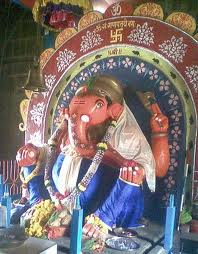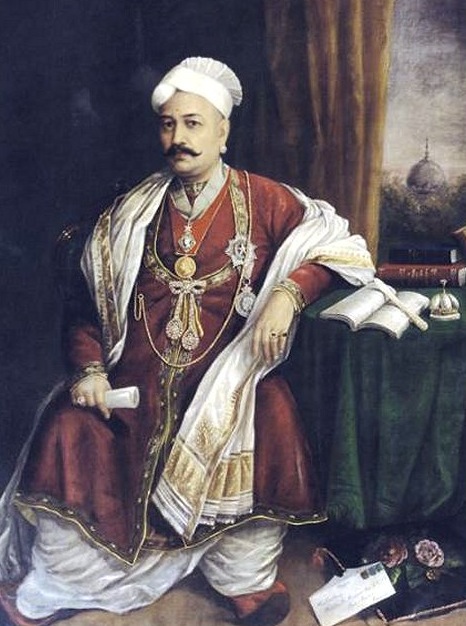|
Vasukaka Joshi
Vasudev Ganesh Joshi ( 28 April 1856 - 12 January 1944), popularly known as Vasukaka Joshi, was an Indian Freedom Fighter. Joshi was the owner of ''Chitrashala'' press after Vishnushastri Krushnashastri Chiplunkar. During the freedom struggle of India, Joshi with Krushnaji Prabhakar Khadilkar were close associates of Lokmanya Tilak and tried to establish contact with Japan via Nepal government. Joshi was also a member of Indian Home Rule League's delegation to England. Life Vasudeo Ganesh Joshi was born in a middle-class Deshastha Brahmin Deshastha Brahmin is a Hindu Brahmin subcaste mainly from the Indian state of Maharashtra and northern area of the state of Karnataka. Other than these states, according to authors K. S. Singh, Gregory Naik and Pran Nath Chopra, Deshastha Br ... family on 28 April 1856 at Dhom near Wait in Satara district. His father Ganukaka Joshi was a priest, farmer, trader and moneylender. The family originally hails from Aurangabad. Vasukaka ... [...More Info...] [...Related Items...] OR: [Wikipedia] [Google] [Baidu] |
Marathi
Marathi may refer to: *Marathi people, an Indo-Aryan ethnolinguistic group of Maharashtra, India *Marathi language, the Indo-Aryan language spoken by the Marathi people *Palaiosouda, also known as Marathi, a small island in Greece See also * *Balbodh, the script used to write the Marathi language *Maharashtrian cuisine * Maratha (other) Maratha or Marathas may also refer to: * Maratha (Arcadia), a village of ancient Arcadia * Maratha (caste), an Indian caste in Maharashtra, India * Maratha, Cyprus Maratha ( gr, Μαράθα, tr, Muratağa) is a small village located in the Fa ... {{disambiguation Language and nationality disambiguation pages ... [...More Info...] [...Related Items...] OR: [Wikipedia] [Google] [Baidu] |
Wai, Maharashtra
Wai (Pronunciation: �aːi) is a town in Satara district of Maharashtra state in India. Located on the Krishna River, Wai was a prominent town during the Peshwa era. Two important Maratha Brahmin from ruling families had their origins here: Rani Lakshmibai of Jhansi ( Tambe family) and Gopikabai, wife of Nanasaheb Peshwa (Raste family). Locally prominent families such as the Raste, Ranade, Phadnavis etc. built several architecturally significant temples in Wai. 400 years old Mandhradevi Kalubai temple is about 12 kilometers from Wai on a hill 718 metres above sea level. In recent decades, Wai has become a popular location for filming Bollywood and Marathi movies, with over 300 films have been shot in and near Wai. History Wai has the epithetic name "Dakshin Kashi" (Kashi or Varanasi of the South) because of the city's more than 100 temples. Wai is known in Maharashtra for its ghats on the banks of the Krishna River and its temples, especially the Dholya ganapati temple on Ga ... [...More Info...] [...Related Items...] OR: [Wikipedia] [Google] [Baidu] |
Indian Freedom Struggle
The Indian independence movement was a series of historic events with the ultimate aim of ending British rule in India. It lasted from 1857 to 1947. The first nationalistic revolutionary movement for Indian independence emerged from Bengal. It later took root in the newly formed Indian National Congress with prominent moderate leaders seeking the right to appear for Indian Civil Service examinations in British India, as well as more economic rights for natives. The first half of the 20th century saw a more radical approach towards self-rule by the Lal Bal Pal triumvirate, Aurobindo Ghosh and V. O. Chidambaram Pillai. The final stages of the independence struggle from the 1920s was characterized by Congress' adoption of Mahatma Gandhi's policy of non-violence and civil disobedience. Intellectuals such as Rabindranath Tagore, Subramania Bharati, and Bankim Chandra Chattopadhyay spread patriotic awareness. Female leaders like Sarojini Naidu, Pritilata Waddedar, and Kasturba ... [...More Info...] [...Related Items...] OR: [Wikipedia] [Google] [Baidu] |
Vishnushastri Krushnashastri Chiplunkar
Vishnushastri Chiplunkar (20 May 1850 – 17 March 1882) ( Marathi : विष्णुशास्त्री कृष्णाशास्त्री चिपळूणकर) was a Marathi writer, whose writings have had a decisive influence on modern Marathi prose style. He was the son of the writer and scholar Krushnashastri Chiplunkar. Life Vishnushastri was born in Pune in a Chitpavan Brahmin family to the Sanskrit scholar Krishnashastri Chiplunkar. He obtained his B.A. from Deccan College, Pune in 1872 and worked as a schoolteacher in government schools during the years 1872–1879. In 1880, he founded (together with Gopal Ganesh Agarkar and Bal Gangadhar Tilak) the newspapers Kesari (केसरी, in Marathi) and Mahratta (in English).He was also a co-founder The New English School in Pune. These institutions intended to provide a more patriotically inclined education as opposed to the schools run by the government in British India. In 1878, Chiplunkar fou ... [...More Info...] [...Related Items...] OR: [Wikipedia] [Google] [Baidu] |
Maharashtra Times
''Maharashtra Times'' ( mr, महाराष्ट्र टाइम्स), colloquially referred to as 'Ma Ta' (मटा) from its Marathi initialism, is a Marathi newspaper based in Mumbai, India. It is one of the largest selling daily Marathi newspapers in the country and part of The Times of India group. According to the IRS 2005 survey, ''Maharashtra Times'' enjoys the second largest readership in Mumbai. Other than ''The Times of India'', ''Maharashtra Times'' is the only newspaper in Mumbai which has more than one million readers in the city. Editions ''Maharashtra Times'' has 6 editions from 6 major cities in Maharashtra namely - Mumbai (including Vasai-Virar), Pune, Thane (including Navi Mumbai), Nashik, Aurangabad and Nagpur. In May 2020, they stopped their Ahmednagar, Jalgaon and Kolhapur Kolhapur () is a city on the banks of the Panchganga River in the southern part of the Indian state of Maharashtra. It is the administrative headquarter of the Kolhapur ... [...More Info...] [...Related Items...] OR: [Wikipedia] [Google] [Baidu] |
Mumbai
Mumbai (, ; also known as Bombay — the official name until 1995) is the capital city of the Indian state of Maharashtra and the ''de facto'' financial centre of India. According to the United Nations, as of 2018, Mumbai is the second-most populous city in India after Delhi and the eighth-most populous city in the world with a population of roughly 20 million (2 crore). As per the Indian government population census of 2011, Mumbai was the most populous city in India with an estimated city proper population of 12.5 million (1.25 crore) living under the Brihanmumbai Municipal Corporation. Mumbai is the centre of the Mumbai Metropolitan Region, the sixth most populous metropolitan area in the world with a population of over 23 million (2.3 crore). Mumbai lies on the Konkan coast on the west coast of India and has a deep natural harbour. In 2008, Mumbai was named an alpha world city. It has the highest number of millionaires and billionaires among all cities i ... [...More Info...] [...Related Items...] OR: [Wikipedia] [Google] [Baidu] |
Krushnaji Prabhakar Khadilkar
Krushnaji Prabhakar Khadilkar (Devanagari: कृष्णाजी प्रभाकर खाडिलकर) (25 November 1872 – 26 August 1948) was a Marathi writer from Maharashtra, India. George calls him "a prominent lieutenant of Lokmanya Tilak". He was editor of Kesari, Lokmanya and Navakal. The subject of navakal is political , trade and market price Khadilkar in the beginning of his career wrote prose-plays, but achieved "even greater recognition" with plays like ''Svayamvara'' – which had songs which were based on Indian classical music. The notability of his dramatic technique, in his fifteen plays, was to "endow ancient Hindu legends and tales with contemporary political significance". The Encyclopaedia of Indian Literature (Volume Two) (Devraj To Jyoti), remarks that while Annasaheb Kirloskar "laid the foundation of popular sangit natak", it saw its great rise and gradual decline with the advent of Khadilkar. It considers Khadilkar along with Bal Gandharva ... [...More Info...] [...Related Items...] OR: [Wikipedia] [Google] [Baidu] |
Lokmanya Tilak
Bal Gangadhar Tilak (; born Keshav Gangadhar Tilak (pronunciation: eʃəʋ ɡəŋɡaːd̪ʱəɾ ʈiɭək; 23 July 1856 – 1 August 1920), endeared as Lokmanya (IAST: ''Lokmānya''), was an Indian nationalist, teacher, and an independence activist. He was one third of the Lal Bal Pal triumvirate. Tilak was the first leader of the Indian independence movement. The British colonial authorities called him "The father of the Indian unrest". He was also conferred with the title of " Lokmanya", which means "accepted by the people as their leader". Mahatma Gandhi called him "The Maker of Modern India". Tilak was one of the first and strongest advocates of Swaraj ('self-rule') and a strong radical in Indian consciousness. He is known for his quote in Marathi: "Swaraj is my birthright and I shall have it!". He formed a close alliance with many Indian National Congress leaders including Bipin Chandra Pal, Lala Lajpat Rai, Aurobindo Ghose, V. O. Chidambaram Pillai and Muhammad Ali Jinn ... [...More Info...] [...Related Items...] OR: [Wikipedia] [Google] [Baidu] |
Deshastha Brahmin
Deshastha Brahmin is a Hindu Brahmin subcaste mainly from the Indian state of Maharashtra and northern area of the state of Karnataka. Other than these states, according to authors K. S. Singh, Gregory Naik and Pran Nath Chopra, Deshastha Brahmins are also concentrated in the states of Telangana , Andhra Pradesh and Madhya Pradesh Author Pran Nath Chopra and journalist Pritish Nandy says, "Most of the well-known saints from Maharashtra, Karnataka and Andhra Pradesh were Deshastha Brahmins". The mother tongue of Deshastha Brahmins is either Marathi or Kannada. Some Deshasthas who settled in Telugu states also adopted Telugu as their mother tongue. Over the millennia, the Deshastha community has produced Mathematicians such as Bhāskara II, Sanskrit scholars such as Bhavabhuti; Bhakti saints such as Dnyaneshwar, Sripadaraja, Eknath, Purandara Dasa, Samarth Ramdas and Vijaya Dasa; Logicians such as Jayatirtha and Vyasatirtha. The traditional occupation of Deshastha Brahmins ... [...More Info...] [...Related Items...] OR: [Wikipedia] [Google] [Baidu] |
1856 Births
Events January–March * January 8 – Borax deposits are discovered in large quantities by John Veatch in California. * January 23 – American paddle steamer SS ''Pacific'' leaves Liverpool (England) for a transatlantic voyage on which she will be lost with all 186 on board. * January 24 – U.S. President Franklin Pierce declares the new Free-State Topeka government in "Bleeding Kansas" to be in rebellion. * January 26 – First Battle of Seattle: Marines from the suppress an indigenous uprising, in response to Governor Stevens' declaration of a "war of extermination" on Native communities. * January 29 ** The 223-mile North Carolina Railroad is completed from Goldsboro through Raleigh and Salisbury to Charlotte. ** Queen Victoria institutes the Victoria Cross as a British military decoration. * February ** The Tintic War breaks out in Utah. ** The National Dress Reform Association is founded in the United States to promote "rational" dress for ... [...More Info...] [...Related Items...] OR: [Wikipedia] [Google] [Baidu] |
1944 Deaths
Events Below, the events of World War II have the "WWII" prefix. January * January 2 – WWII: ** Free France, Free French General Jean de Lattre de Tassigny is appointed to command First Army (France), French Army B, part of the Sixth United States Army Group in North Africa. ** Landing at Saidor: 13,000 US and Australian troops land on Papua New Guinea, in an attempt to cut off a Japanese retreat. * January 8 – WWII: Philippine Commonwealth troops enter the province of Ilocos Sur in northern Luzon and attack Japanese forces. * January 11 ** President of the United States Franklin D. Roosevelt proposes a Second Bill of Rights for social and economic security, in his State of the Union address. ** The Nazi German administration expands Kraków-Płaszów concentration camp into the larger standalone ''Konzentrationslager Plaszow bei Krakau'' in occupied Poland. * January 12 – WWII: Winston Churchill and Charles de Gaulle begin a 2-day conference in Marrakech ... [...More Info...] [...Related Items...] OR: [Wikipedia] [Google] [Baidu] |





